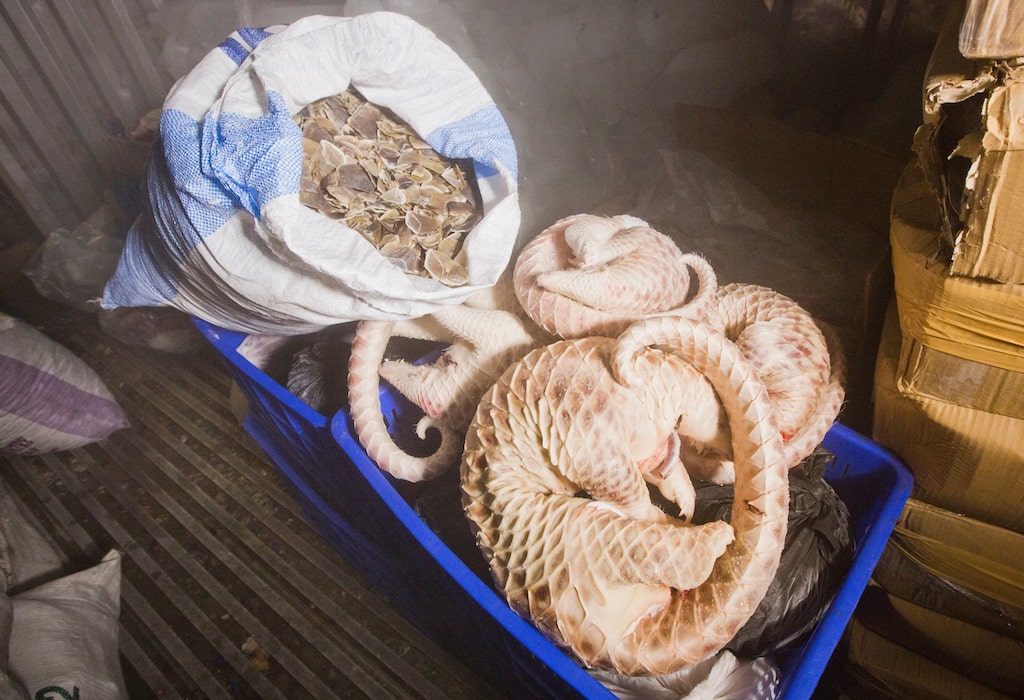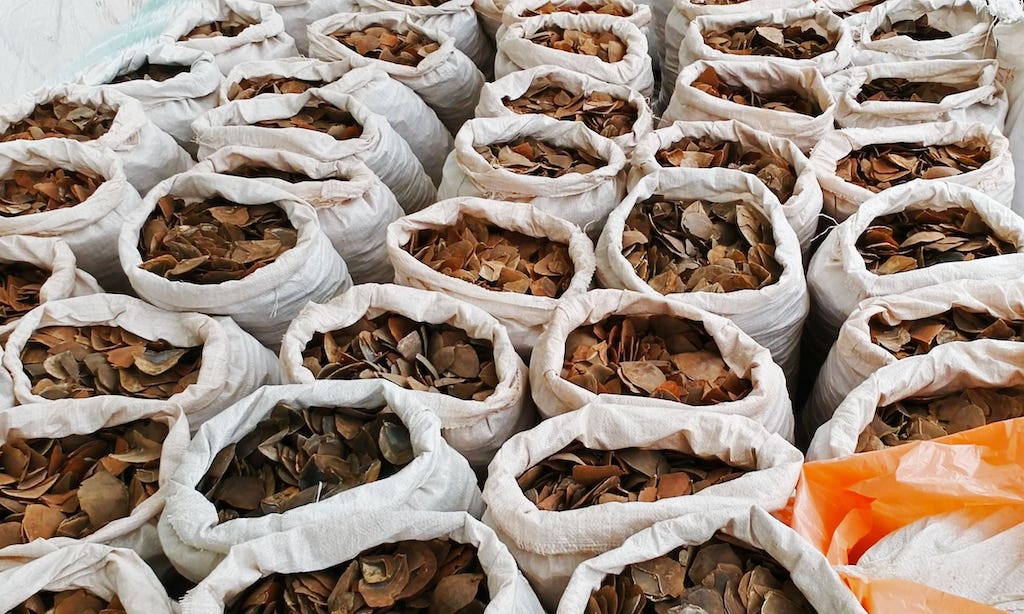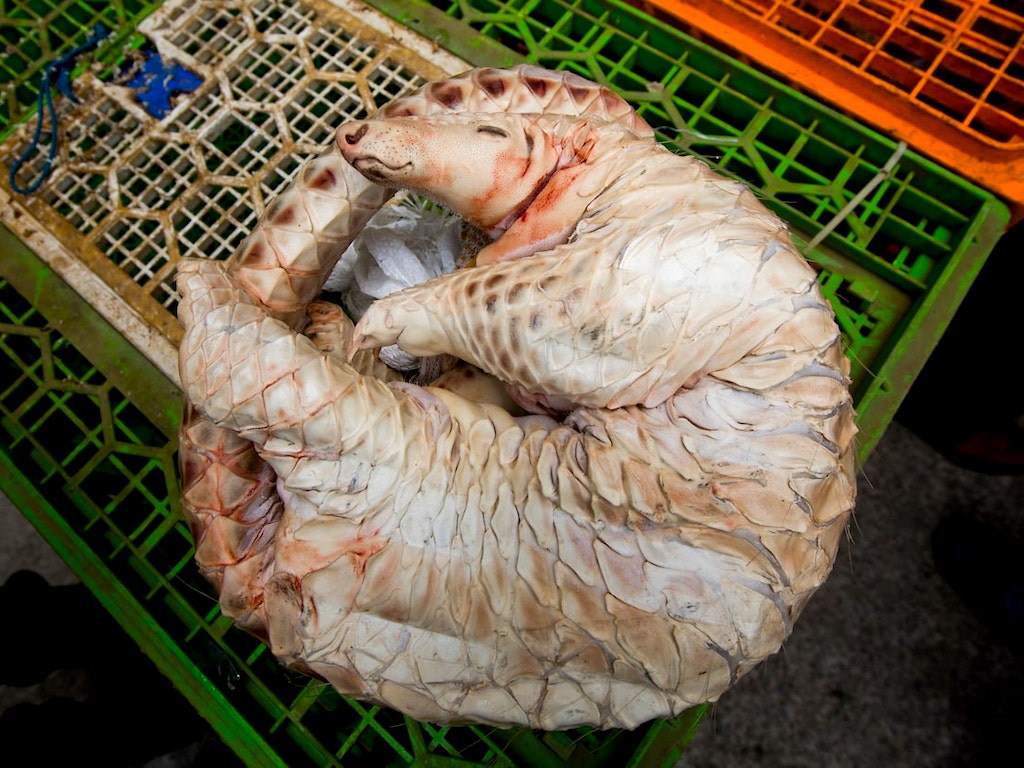4 Mins Read
Hong Kong remains one of the largest hubs for the illegal wildlife trafficking industry, with wildlife seizures at record-breaking levels, a report has revealed. According to newly published data, pangolin trafficking is still prevalent at “devastatingly high” rates and researchers are warning of a worrying diversification in the number of endangered species being traded in the city.
In a new report titled Trading in Extinction, published by Asia-focused nonprofit ADM Capital Foundation, researchers detail the continued role Hong Kong plays in the international illegal wildlife trade. Between 2018 and 2019, Hong Kong authorities seized a record-breaking 649 metric tonnes of rare and endangered wildlife species, involving more than 7,000 live animals spanning 1,400 separate cases – of which 2,300 endangered animals were euthanised in 2019.
These volumes exceed the annual totals for the entire preceding decade, with the exception of 2015. It marks the builds on the quantifiable data that has emerged in recent years documenting the extent of wildlife crime being conducted in Hong Kong and confirms the city’s “disproportionately large trafficking footprint” fuelling the global trade and the harmful environmental and health consequences that flow from the industry.
Wildlife trade monitoring in the report also details the shift in trade dynamics over the past years. While there has been a decline in ivory trafficking since a local ban was enacted in 2018, pangolins remain traded at “devastatingly high levels” and reached an all-time high in 2019 after a three-fold year-on-year increase.
Pangolins have come under particular spotlight over the past year as they have been found to carry a strain of coronavirus similar to one that causes Covid-19. Though no conclusions have been made, some studies believe that pangolins could have been the intermediary host animal enabling the spread of the virus that is most likely to have come from bats.

It is vital that decisive action is taken to change our city from being a hub for the illegal wildlife trade to become a global leader in the fight against it.
Sophie le Clue, Director Environment Programme, ADM Capital Foundation
According to conservation organisation WildAid, as many as 200,000 pangolins are trafficked each year.
Researchers further noted that there has been a diversification in the number of other endangered species being seized by authorities, indicating a worrying uphill trend for conservationists and animal welfare activists to battle when it comes to clamping down the exploitative trade in Hong Kong.
Sophie le Clue, director of the environment programme at ADM Capital Foundation, warns that legislative action must be taken now in Hong Kong to end global wildlife trafficking.
“It is vital that decisive action is taken to change our city from being a hub for the illegal wildlife trade to become a global leader in the fight against it. If not, we will continue to inflict irreversible damage on the world’s biodiversity and suffer impacts long into the future,” said le Clue.
“The unrelenting rise in Hong Kong’s wildlife seizures is a clear signal that we cannot continue to ignore the wildlife traffickers who exploit our city,” added Dr. David Olson, director of conservation at WWF-Hong Kong.

The unrelenting rise in Hong Kong’s wildlife seizures is a clear signal that we cannot continue to ignore the wildlife traffickers who exploit our city.
Dr. David Olson, Director of Conservation, WWF-Hong Kong
While pressure on governments to take a stand on illicit wildlife trading reached a high in the early months of 2020 at the beginning of the pandemic, the issue has started to take a backseat in headlines, despite continuous calls from biodiversity and zoonotic disease experts alike urging stronger action to prevent another global health crisis.
Read: Global survey finds mass public support to eliminate wildlife markets
China has taken some steps, including enacting a permanent shut down of the wildlife industry early last year, but exemptions for medicinal purposes, fur and leather industries remain, allowing the loophole to flourish online.
The country has also reportedly removed pangolin scales from its traditional Chinese medicine list, but the ingredient remains listed on several recommended patent formulas and questions also remain about the country’s contradictory efforts to promote traditional medicines containing wild animal species, including bear bile injections that have no scientific basis for efficacy.
Read our earlier news coverage of Covid-19 here and more news on animal rights here.
Lead image courtesy of Paul Hilton for Earth Tree.




